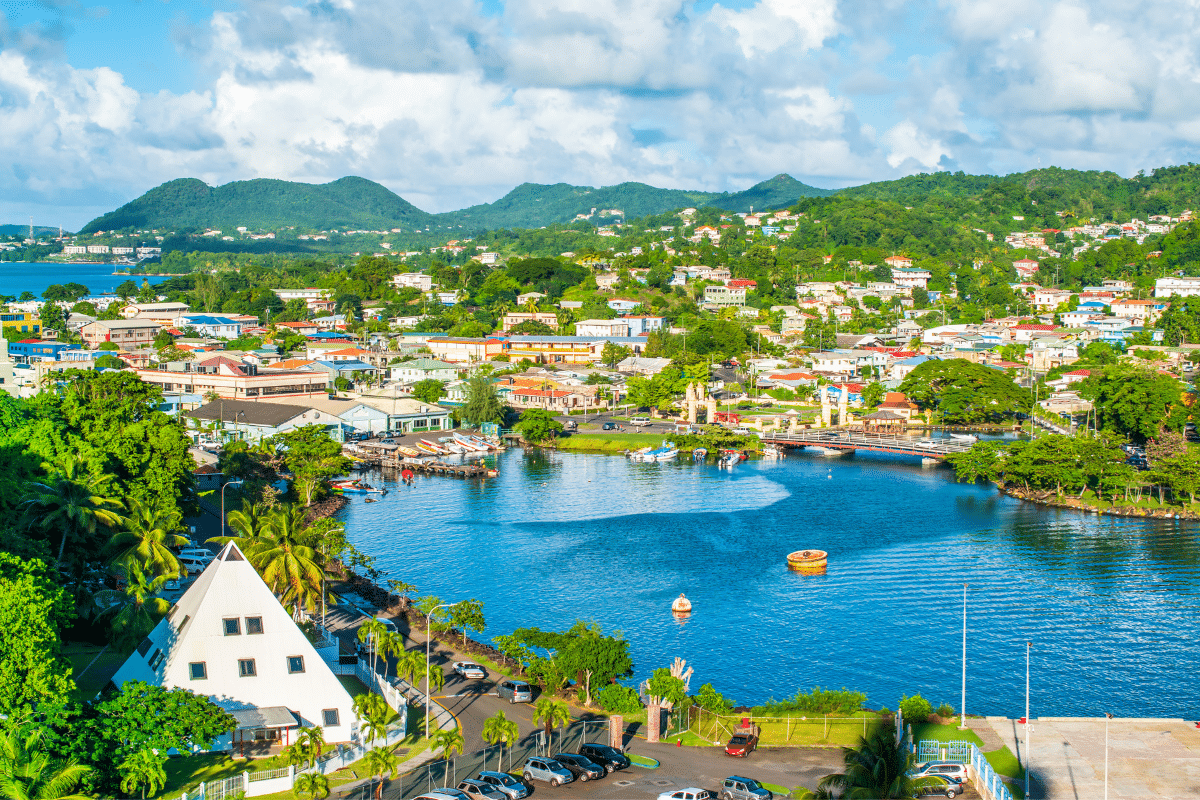From the Ground Up: St. Lucia’s Ever-Evolving CIP Pre and Post Covid-19


Interview with Brenda Floissac Fleming, Senior Partner at the firm Floissac Fleming & Associates and Managing Director of Polaris Citizenship & Investment Consultancy Services in St. Lucia & Keith Isaac, attorney at-law at the firm Floissac Fleming & Associates and General Manager of Polaris Citizenship & Investment
Consultancy Services in St. Lucia.
The Caribbean CBI industry will experience a surge in demand, but it will also become more competitive as a result of the coronavirus pandemic, write Brenda Floissac Fleming and Keith Isaac of Polaris Citizenship & Investment Consultancy Services.
One may argue that Citizenship by Investment is intrinsically Caribbean. This once micro-industry kickstarted by St. Kitts & Nevis in 1984 is now established in 13 countries worldwide; five of which are Caribbean. St. Lucia is the latest isle in the region to have made that metaphoric plunge, having established its citizenship-by investment programme in 2016. Unlike most regional CIPs, Parliament’s clear intention was to offer a niche programme to the world’s billionaire club, with starting investments double that of the most competitively priced programmes in the region. This proved unpopular, and the island had limited success in attracting economic citizens to its shores.
Emphasis Change
By 2017, St. Lucia aligned its approach with that of its regional counterparts. Starting investments were reviewed to create parity with the region’s most competitive programmes, while net worth requirements and other arbitrary hindrances to citizenship were removed. This shift was vindicated with an almost 1,000% increase in applications for the year 2017. Legislation has been complimented by a focused marketing mix. This has involved strategic partnerships with global stakeholders in key markets in an attempt to boost the programme’s visibility. The selling point of St Lucia’s CIP has transcended the cliché visa-free rhetoric and has been multifaceted; incorporating the island’s culture, a focus on foreign direct investment and ease of doing business. This has allowed St. Lucia, unlike similar third world CBI destinations, to be viewed by many HNWIs as a viable second home. These shifts, along with streamlining of the application process and a focus on top-tier due diligence, helped the programme gain the investment migration industry’s respect.
Covid-19 Emergence
St. Lucia, like most Caribbean CBI offerings, has been acutely affected by Covid-19. As a nation largely dependent on tourism, short term economic loss due to the pandemic has been reported in several industries. Quite uniquely, whilst causing ruin to global economies, the coronavirus pandemic has simultaneously accelerated growth in the investment migration industry. The expected long-term recession and the likeliness of tax hikes in several first-world jurisdictions, coupled with nationalist and protectionist policy trends, have seen interest in Caribbean citizenship surge from both traditional and non-traditional markets such as South Africa and Europe.
Response to Date
Eager to make best use of this incidental opportunity, Caribbean governments have taken swift action to attract HNWIs to their programmes. This has included price reductions and fee waivers from the likes of St. Kitts and Dominica. Refusing to be outdone, St. Lucia’s Parliament has approved amendments to the country’s CIP. Those included a reduction of the qualifying donation from US$190,000.00 to US$150,000.00 for a family of four and the introduction of a limited time Covid-19 noninterest- bearing bond starting at US$250,000.00 with a five-year maturity period. Most notably, the definition of ‘qualifying dependent’ has widened significantly to include children aged 30 and parents aged 55, provided that they are fully supported by the primary applicant. Whilst critics may argue that such actions diminish an offering’s value and contribute to a philosophical ‘race to the bottom’ by third-world CIPs, these shifts are signs of the times – nations with limited resources are waging war against each other in a competitive CBI industry. The opportunity to earn foreign exchange amidst global financial crises simply cannot be disregarded by newly independent states still attempting to secure post-independence economic utopia. Meanwhile, improvements to the scope of ‘qualifying dependent’ should be welcomed as it points towards greater opportunity for nontraditional family structures to benefit from CBI. We anticipate the legislative acceptance of non-heterosexual family structures by regional CIPs.
Future Outlook
Whilst the verdict is still out on these initiatives, one should expect sustained incentivising of HNWIs in a post-Covid-19 St. Lucia, which will likely continue to rely heavily on its CIP in the wake of an impacted tourism sector. Externally, demand for RCBI should continue to intensify with prolonged economic, social and political uncertainty forecasted in major markets. The challenge for St. Lucia’s, and other regional CIPs, post Covid-19 will be balancing the need to attract economic citizens with the requirement to maintain ‘programme integrity’ in an increasingly regulated RCBI sector, shadow governed by global superpowers, often far removed from, and with little understanding of, Caribbean realities.

